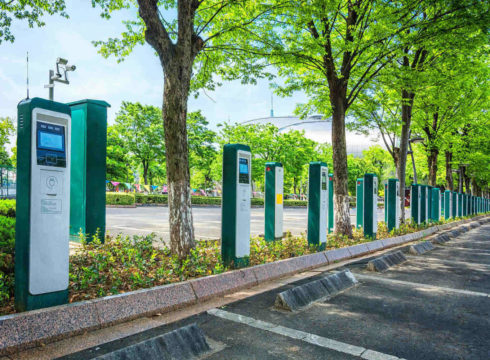SUMMARY
Punjab government and World Economic Forum will design a public-private pilot on shared, clean and electric mobility
The collaboration will be formulated at the WEF Annual Meeting in Davos in January 2020
Punjab government has been working towards a strong EV ecosystem
Inc42 Daily Brief
Stay Ahead With Daily News & Analysis on India’s Tech & Startup Economy
Electric vehicles have been the talk of the town for a few years now. With the need of the hour being improving air quality across Indian cities, EV startups have been getting support from investors as well. There has been an increased focus on setting in place an effective EV infrastructure.
Recently, the Punjab Government partnered with the World Economic Forum (WEF) to design a Public-Private pilot on shared, clean and electric mobility.
WEF has particularly chosen Punjab for its pilot project as the state has an auto component manufacturing base. The state also has skilled labour, surplus of power and is in the process of framing an effective EV policy to support the adoption of e-vehicles.
“The pilot will examine how Public and Private sectors can interplay to offer the most robust and successful EV ecosystem, as part of the collaboration to be formulated at the WEF Annual Meeting in Davos in January 2020,” said Vini Mahajan, additional chief secretary, Investment Promotion and Addl CS, Industries and Commerce, Punjab told New Indian Express.
Punjab’s EV policy is based on a self-sustainable model that gives incentives over and above FAME-II (Faster Adoption and Manufacture of (Hybrid and) Electric Vehicles), which is an incentive scheme for the promotion of electric and hybrid vehicles in the country. The draft will reportedly include special upfront subsidy, waiver of motor vehicle tax, scrapping of vehicles not compliant to Bharat Stage-IV, among others.
Recently, electric three-wheeler manufacturer Republic Motors was also selected by the Ministry of Home Affairs and Land Ports Authority of India to provide electric vehicles (EV) for the Kartarpur Corridor. This will help 5K Indian passengers to commute every day.
The Corridor was inaugurated by Prime Minister Modi, on November 9, 2019, to allow Indian pilgrims to visit Gurdwara Darbar Sahib in Pakistan. The Jalandhar-based EV company said that it would be providing six campus electric carts as a pilot and more as and when required.
Boosting charging infrastructure has also become the need of the hour for government and the EV industry. The government has also announced plans to invest INR 1,000 Cr of 10,000 Cr budget allocated under FAME II.
The FAME II has also proposed to provide one slow-charging station for every electric bus and one fast-charging station for 10 electric buses. “Charging infrastructure is something that the Ministry of Power is looking at. We are coordinating but it is under the ambit of Ministry of Power to make an announcement in this regard,” said the NITI Aayog officer while speaking to Inc42 in May this year.
Not only India, globally there has been an increased focus on the environment in the last decade. In fact, this year, the United Nations Environment Programme had decided to go with Air Pollution as the theme for the 2019 World Environment Day. 2018 State of Global Air report said that 95% of the world’s population lives in areas with the worst air quality than the WHO guidelines for healthy air.
Note: We at Inc42 take our ethics very seriously. More information about it can be found here.


